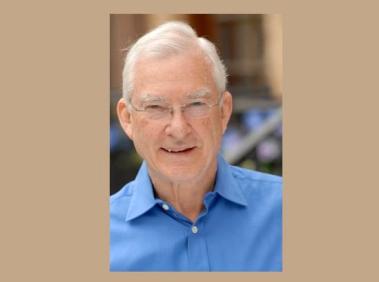Murdoch Brings Out All Seven Emotions - Charlie Warner

Last year, the Business Insider ran a feature titled "100 Things You Should Know About People" that included an article titled "Only Seven Emotions Are Universal."
Those universal emotions are:
· Joy
· Sadness
· Anger
· Contempt
· Surprise
· Disgust
· Fear
The recent phone hacking scandal involving News Corp., Rupert Murdoch, and his son James have elicited all seven of these emotions in the reading public, in journalists, in competitors, and in government.
There has been sustained and masked joy in Murdoch competitors over the hacking scandal that is threatening to reduce the power, influence, and credibility of News Corp. What politician will compete for Murdoch's endorsement now? And government agencies are almost certain to look at the regulatory favors they have granted News Corp., which will give competitors and those interested in a free press some joy.
There is certainly sadness among executives, managers, employees, and talent of News Corp. subsidiaries because of the loss of credibility of Murdoch and such News Corp. properties as the NY Post, Fox News, and even the Wall Street Journal, Murdoch's crown jewel. Furthermore, the drop in the company's stock price since the hacking scandal was uncovered and Rupert and James had to appear contritely before Parliament must deepen the sadness substantially because for a company whose only passion is profit when the profit is threatened, there is nothing else that can bring happiness or satisfaction.
There is massive anger among the victims of the hacking. There is also anger among regulators and police authorities who genuflected to Murdoch and whose groveling is now exposed – they look as greedy as the old man himself.
There is universal contempt among legitimate journalists (some of whom work for Murdoch at such news outlets as the Wall Street Journal) for the debasement of journalistic standards practiced by the News Corp. properties that did the hacking. What self-respecting reporter would now want to be associated with News Corp. now? Bill O'Reilly, Sean Hannity, and Don Imus are not journalists or reporters; they are entertainers who will continue to be comfortable in the hacking scandal environment – what do journalistic ethics have to do with what they do?
There is certainly surprise on the part of long-time Murdoch watchers like me that the wily, old, evil Emperor got caught. Murdoch has slithered through close examination by regulators for so long, that it seemed he had bullied and bought his way into a Star-Wars-type protective energy shield. But as in all good stories and myths, eventually good triumphs over evil. The hero in this story is not Luke Skywalker but Alan Rusbridger, the editor of The Guardian, the British newspaper that courageously uncovered and followed the hacking scandal until Murdoch finally had to defend himself.
There is no need to detail the disgust all fair-minded people on both sides of the Atlantic have for Murdoch, his son James, the executives of the now-defunct News of the World, and cooperating Scotland Yard officials who abetted Murdoch's papers illegal hacking and spying. And make no mistake, it was Murdoch's profitable newspaper. He talked to its editor daily, as he testified in the Parliamentary hearing, so how could he not know about how they got their celebrity scandal scoops? He assuredly tacitly agreed to the plausibly deniable scheme of hiring outside investigators.
And finally, there is fear. Murdoch ruled by fear, his power was based on fear – the fear of politicians of not getting a Murdoch newspaper endorsement. Fear of regulators of being attacked by the many outlets in his media conglomerate. Fear of not receiving his favors. News Corp. executives and management lived in fear of falling out of favor of the evil Emperor and of profits and, thus, stock prices falling.
I can think of no event or person since, perhaps, William Randolph Hearst, who has elicited so many emotions as Rupert Murdoch. But as Orson Wells' classic film, Citizen Kane, implicitly asked, "is he happy?"
The answer for Murdoch today is, decidedly, "no," which is like the way a tragic story should end. King Lear or Citizen Kane, anyone?
Until he retired in 2002, Charlie Warner was Vice President of AOL's Interactive Marketing division. Before joining AOL, he was the Goldenson Endowed Professor at the Missouri Journalism School where he taught media management and sales, and he created and ran the annual Management Seminar for News Executives. Charlie can be contacted at charleshwarner@gmail.com.
Read all Charlie’s MediaBizBloggers commentaries at The Media Curmudgeon.
Check us out on Facebook at MediaBizBloggers.com
Follow our Twitter updates @MediaBizBlogger
The opinions and points of view expressed in this commentary are exclusively the views of the author and do not necessarily represent the views of MediaBizBloggers.com management or associated bloggers. MediaBizBloggers is an open thought leadership platform and readers may share their comments and opinions in response to all commentaries.

